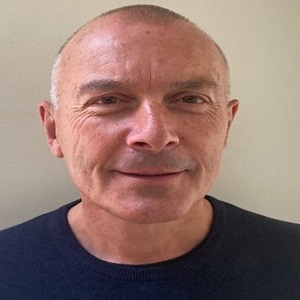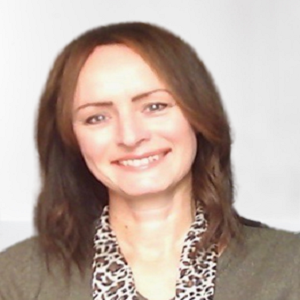Coaching Conference 2022 - speakers
Speakers

Angela Lewis
Angela Lewis was appointed Director of Workforce and Organisational Development of the Welsh Ambulance Services NHS Trust in September 2022, with responsibility for people services, organisational development and professional education and training.
Angela joined the Welsh Ambulance Services NHS Trust from Companies House where she was Director of People Transformation.
Angela has a 30-year career in leading high performing teams, with a very people-centred approach to empowering leaders and creating the right culture that allows everyone to bring their whole self to work.
Prior to joining Companies House, Angela worked at the Office of National Statistics, Cardiff Metropolitan University (then UWIC), the Metropolitan Police and Great Ormond Street Hospital.
She is a fellow of the Chartered Institute of Personnel Development (CIPD) and has a Master's degree in Human Resource Management.

Tara Halliday
Tara Halliday is a leading expert in imposter syndrome, and the author of the Amazon #1 best-selling book Unmasking: The Coach’s Guide to Imposter Syndrome.
Tara has over 20 years of experience as a holistic therapist and high-performance coach, including certifications in Unconditional Worth Coaching and Neurofeedback.
She is the creator of Inner Success - a confidential, one-to-one transformation programme for executives that completely eliminates imposter syndrome.
Title of keynote session - Imposter Syndrome In-Dpth: the science, root cause and prctical solutions for your clients
This session will share strategies, tools and the science of imposter syndrome, and will discuss and explore:
- What is imposter syndrome and what it is not.
- Myths and misinformation about imposter syndrome.
- Why imposter syndrome is important for mental health, retention, and resilience.
- The root cause of imposter syndrome.
- Physiology of stress and imposter syndrome triggers
- Neuroscience of imposter syndrome
- Managing imposter syndrome vs eliminating it
- Company culture and imposter syndrome
- Framework for coaches to help clients manage imposter syndrome
- What not to do in sessions with imposter syndrome clients
- The huge impact of solving the imposter syndrome problem
Twitter - @tarahalliday1

Dr David Naylor DProf, MA
David is a director of a consultancy practice researching and developing practical interventions to help people resist being silenced at work and find a way of speaking to what they see and know. This work builds on his work at The King’s Fund; a two-year secondment to the NHS Sign up to Safety Campaign; projects in the NHS and wider public sector to understand and mitigate the effects of bullying and incivility; and his doctoral research into the capacity to be ‘constructively awkward’ in organisations.
At The King’s Fund, David co-directed the Top Manager programme and led various senior leadership and board development projects. David previously worked for Tavistock Consulting and taught on the Tavistock’s doctorate programme in Consultancy. He has been a Chief Executive of a VCS organisation providing residential and nursing home care. He was previously a service development manager in Haringey mental health services and the mental health advisor to the Leonard Cheshire Foundation.
David has a professional doctorate and a MA in organisational change. He trained in consultancy at the Tavistock, facilitation at the University of Surrey and has a diploma in psychodynamic counselling from Birkbeck.
Title of keynote session - Exploring how imposter syndrome, bullying and incivility and a lack of psychological safety at work, can show up in a coaching conversation.
If I am on the receiving end or witness to bullying and incivility, my capacity to think and speak to what I know and see can be disrupted and diminished; triggering and reinforcing any sense I carry of feeling I am not welcome, I’m inadequate - I’m an imposter. This session seeks to explore the effects of bullying and incivility on our capacity to think and speak, and how taking a system approach can sometimes help someone feel safe enough to find their way back to their competence and voice.
Questions for reflection
- What are the questions and strategies you have found useful when working with imposter syndrome?
- What do we still need to understand about how to help?
Additional reading
Edmonson, A. (2019) The fearless organisation. Creating psychological safety in the workplace for learning, innovation, and growth. New Jersey: Wiley.
Naylor, D. (2023) Speaking up in a culture of silence. Routledge: Oxford.
Schein, E. (2018) Humble leadership. The power of relationships, openness, and trust. Berrett-Koehler: San Francisco.
Schein, E. (2013) Humble inquiry. The gentle art of asking instead of telling. Berrett-Koehler Publishers: Oakland.
Sieghart, M. (2021) The authority gap. Penguin Random House: London.
Twitter - @DrDnaylor64

Marie Edwards
Marie has worked in Learning and Organisational Development for over 17 years and is an experienced facilitator, coach and coach supervisor. Most of her career to date has been within public service including local government, civil service and NHS where she has led the development of internal coaching networks, strategies and policies to support an organisational coaching culture.
Currently lead tutor for the ILM L7 and L5 qualifications in Coaching & Mentoring at the University of South Wales, Marie is also the recent founder of inSynergy, a personal and professional development consultancy which supports individuals and teams to develop greater connection and alignment within themselves, their work and their relationships.
Marie believes we spend far too much of our life at work to not fully enjoy it and so her aim is to help people develop a greater awareness of their goals, strengths and values, the confidence to choose courage over comfort [shout out to the superb Brene Brown] and ultimately, to make the most of their one, epic life!
Her borrowed motto is “Don't ask yourself what the world needs. Ask yourself what makes you come alive, and go do that, because what the world needs is more people who have come alive.” [Howard Thurman]
Title of keynote session - Trust, authenticity and vulnerability in the coaching relationship
This will be an interactive session, exploring the importance of trust in the coaching relationship, identifying some of the key components of this such as authenticity and vulnerability and reflecting on how our own experience of imposter syndrome might impact on our practice as coaches.
Twitter - @MarieEdwards21
Timetable
09:00 Networking
09:15 Welcome and introduction - Alex Walters, Director of Academi Wales
09:20 Chair - Angela Lewis, Director Workforce and Organisational Development, Welsh Ambulance Service NHS Trust
09:30 Imposter Syndrome In-Depth: The science, root cause and practical solutions for your clients - Tara Halliday, PhD. Director, Complete Success Ltd
10:30 Break
11:00 Tara Halliday
12:00 Networking lunch
13:00 Trust, authenticity and vulnerability in the coaching relationship - Marie Edwards, Professional Development Consultant, inSynergy UK
14:00 Exploring how imposter syndrome, bullying and incivility and a lack of psychological safety at work, can show up in a coaching conversation - David Naylor, DProf, MA
15:00 Break
15:30 David Naylor
16:15 to 16:30 Close - Angela Lewis

